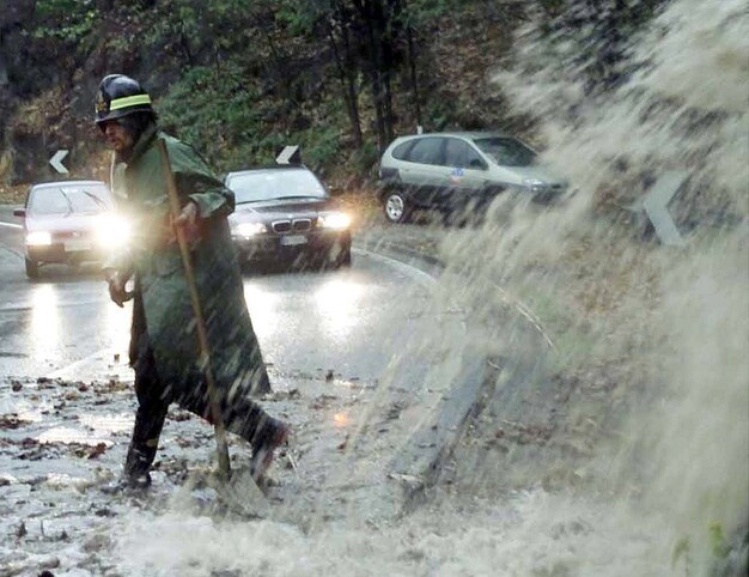Cyclone Poppea is ripping across Italy bringing cloudbursts, gales and ‘maxi waves’ to most parts, according to local reports on Tuesday.
The extreme weather has interrupted a series of heatwaves in the Bel Paese that have led to breathless and muggy ’afa’ and many wildfires, especially in the south of the country, as well as some heatstroke deaths.
The bad weather is now continuing over Italy, especially in the North-East and the entire Tyrrhenian strip, the coastal area in the west of the country.
Widespread squalls have been reported in Sardinia, along with large waves up to seven metres in height off the coast of the Mediterranean island.
A landslide in Bisuschio, in the Varesotto (Varese) area, has necessitated the evacuation of four families amid fears for their lives.
Hydrofoils to the Bay of Naples islands of Ischia and Procida have been temporarily stopped due to strong winds and heavy seas.
The MOSE flood barrier system is still action to curb flooding in Venice.
A water bomb with a violent hailstorm hit last night, at about 1.30am, in the province of Lecce, between Montesano, Specchia and Miggiano.
The hail, the size of tennis balls, broke windshields, headlights and the bodywork of parked cars.
Also damaged were the dehors of various bar and restaurant premises where the hail pierced plastic tables and chairs, causing havoc.
Several greenhouses were destroyed and surrounding roads and countryside flooded.
Poppea has also brought snow back to the Marmolada glacier and peak in the Dolomites, sources said on Tuesday.

Poppea has brought welcome snow back to the Marmolada glacier and peak in the Dolomites. (Photo: ANSA)
Decent dumps were reported Tuesday night, with good intensity in the higher realms of the massif, giving the glacier its more usual appearance.
At the 3334 metres of the Punta Penia hut, the refuge managed by Carlo Budel, 10-15 centimetres of fresh snow were measured Tuesday morning, and the temperature was below zero.
It was a fillip for this litmus test and marker of climate change, which after the terrible collapse of the Serac in 2022 experienced another season this summer with exceptional temperatures at this altitude, and the thermometer always above zero degrees, even at night.
ANSA











